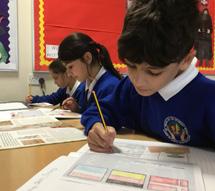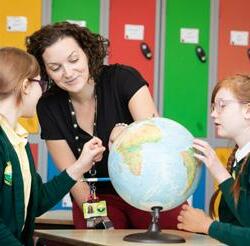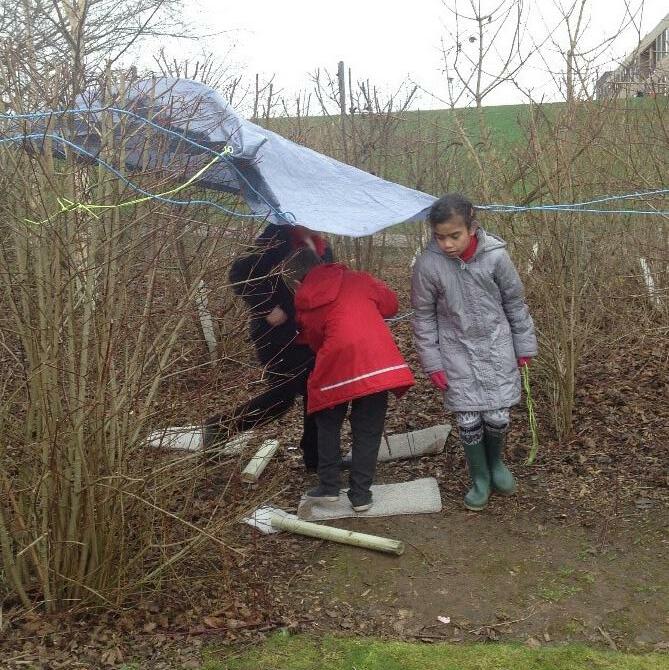
7 minute read
25 History & Geography
Etruscan Primary School
• Curriculum Design, History Leadership
Advertisement
National requirements for all foundation subjects are mapped out as a whole school and then individual year groups plan the curriculum for their pupils accordingly. We follow the Learning Challenge Curriculum, which is a topic based curriculum. This enables our children to make connections between subjects and means that they can practise and apply the skills they learn across different subjects. The Learning Challenge Curriculum has either History or Geography as its main ‘driver’ and is presented to the children as one main overarching question with a different question to answer each week. Skills for all other foundation subjects are used as enhancers for the main topic. The curriculum focusses on the development of the knowledge and skills, making clear links between prior learning. Our history lead can provide pedagogical support.
Lessons are taught using a mixture of teaching strategies with teaching in foundation subjects being mainly ‘workshop’ based to ensure all children are active, engaged, enthusiastic learners. This is achieved by using a wide range of strategies which focus on creating independent learners.
History and Geography
Forest Park Primary School
History teaching at Forest Park follows our belief that all children should have access to and receive a high quality broad and balanced curriculum regardless of ability, additional needs, race, gender or background.
A high-quality history education will help pupils prepare for life as citizens of 21st century Britain. It is through knowledge of how our society came to be that we can successfully prepare for the future. History helps pupils to understand the complexity of people’s lives, the process of change, the diversity of societies and relationships between different groups, as well as their own identity and the challenges of their time.
At Forest Park, we have recently reviewed and developed our curriculum to be relevant to the world we live in: our school, our community and our local area. Through our curriculum, children will learn about the rich history of Britain from the Stone Age through to the Viking era along with key events in our history beyond 1066 and their impact on our local area. This provides wonderful opportunities to investigate British Values and how they, along with our society, have been shaped. In their learning, children will also investigate the history of societies from the wider world to help promote respect and tolerance for other cultures and beliefs.
The geography curriculum at Forest Park has been designed to help children to develop their knowledge, skills and understanding of their local area and the wider world. The curriculum has been created to be relevant to the children’s own lives and experiences of the world. The diverse topics allow children to explore different aspects of geography from locational knowledge to human and physical geography. We aim to inspire and motivate children by encouraging them to understand environmental issues that affect the world they live in. We provide children with opportunities to visit and explore different places to help them to develop their geographical skills and broaden their experiences.
Our use of Knowledge Organisers across the school provides a bedrock of key knowledge which can be built on in teaching, and allows us to spend time developing the skills needed to be historians and geographers. This will equip the pupils to become more independent learners, allowing them to develop skills of asking perceptive and relevant questions, thinking critically, weighing evidence, sifting arguments, and developing perspective and judgement.


Oakhill Primary School
The history and geography curriculums at Oakhill have been ambitiously designed to meet the needs of our children and incorporate a revisit and review section in all lessons to ensure that knowledge and understanding is recalled frequently, helping children to build schema.
In history children cover a wide variety of historical eras, and all year groups complete a unit on local history. Strands run through each of the history topics to enable children to make comparisons across historical eras and teaching takes on a facilitation role, encouraging children to find out for themselves through reading, discussion, enquiry and questioning. In geography, units on map work and geographical locational knowledge are central to our curriculum and ensure that previous knowledge and understanding is regularly recalled and built upon. In addition to these units, each year group completes a local geography unit looking at one of the towns of Stoke-on-Trent and children in KS2 look at an area of France. Other units of work link to the history curriculum.
To book on any of the above or to arrange a classroom observation please contact the lead person identified on pages 2 and 3.


RE
Abbey Hulton Primary School
• RE Subject Leadership
At Abbey Hulton Primary School we value and respect all faiths and cultures. Come and see our Faith and Culture calendar, which displays the religious events we celebrate in our school and log in our Faith and Culture journal. Our calendar is also home to our Faith Boxes where sacred texts and artefacts are stored for Islam, Buddhism, Hinduism, Christianity and Judaism should you wish to have a look or share our resources.
This academic year we have moved into class scrapbooks to record our teaching of RE and would love to share our children’s thoughts, opinions and religious work with you from our beautiful journals.
We have strong links with Breathe City Church and St John’s Church in our local area. Should you require any Christian visiting speakers at your school, please contact our RE subject leader. We have fantastic detailed knowledge organisers for the faiths listed above in both a Key Stage 1 and Key Stage 2 format on our school website.
Forest Park Primary School
At Forest Park RE is taught in a way which promotes and reflects the diversity of our school community. Whilst we still use the Agreed Stoke Syllabus to ensure a broad and varied RE coverage which provides clear and challenging learning outcomes, our planning has been significantly adapted to better meet the needs and interests of the pupils we teach.
In order to provide the children with an extensive RE curriculum we have decided that each year group will study one key religion each year. This approach allows the pupils to fully engage within their chosen religion to gain a deep understanding and broader knowledge. Year after year the children are then able to look at similarities and differences between different religions building on their prior knowledge and also reflecting on their personal beliefs.
We also believe in celebrating different key religious festivals. Our children enjoy celebrating events such as Christmas, Easter, Eid and Diwali, our celebrations allow children to experience these festivals and celebrations by being involved in activities such as food tasting, craft activities and dressing in traditional clothing. The events, festivals and learning that have been completed are then shared with other pupils and families through year group assemblies and whole school craft competitions, which continue to celebrate the diversity within our school community.
St Mark’s CE Primary
At St Mark’s CE Primary School, the teaching of Religious Education (R.E.) plays an important role in defining the school’s distinctive Christian character. As a Church of England school, R.E. is a regarded core subject within the school’s curriculum and therefore must be taught weekly. To enhance the teaching and learning within R.E., the school bases its provision using the Understanding Christianity scheme of work.
The school fosters an accurate and increasing understanding of world religions and worldviews. Over time, children are able to consider the impact and connection that Christianity has on Britain’s cultural heritage and the lives of people worldwide. Children also learn to appreciate the faith of others and develop a deeper understanding of their own ideas and beliefs. These outcomes contribute to harmonious relationships within and between communities, promoting social inclusion and combat prejudice and discrimination.
Religious Education contributes to other areas of the curriculum and plays an important part of the wider programme of spiritual, moral, social and cultural (SMSC) development. It also provides a positive contribution to enhancing creativity and enjoyment and ensure the well-being of all pupils.
An act of worship takes place each day and are based on the school values of RESPECT and the SEAL theme for each half term. The children lead classroom worship every other week. At our main primary school site, we have a room set aside for prayer and reflection - The Rainbow Room. The room is inclusive and may be used by people of all faiths or those with no faith. Children and adults are welcome to use the room for their own prayer and reflection or to simply have some quiet time.
In 2016, St Mark’s had a statutory SIAMS (Statutory Inspection of Anglican and Methodist Schools) inspection and the school was judged to be outstanding.










